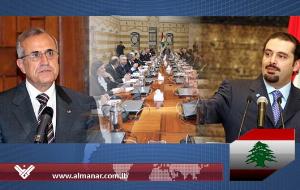Justice deferred, or deterred?
 In Lebanon, crises unfold in unbearably slow motion until a sudden, usually deadly, climax. Everyone tunes out except for the participants and the hardened, usually professional, Lebanon-watchers; it’s all tedious process until somebody gets hurt.
In Lebanon, crises unfold in unbearably slow motion until a sudden, usually deadly, climax. Everyone tunes out except for the participants and the hardened, usually professional, Lebanon-watchers; it’s all tedious process until somebody gets hurt.
That’s what happened on Tuesday when Hezbollah forced a government collapse. It sounds dramatic, and it’s a critical point in the slow boiling showdown that’s simmered for years over the International Special Tribunal on the Lebanon assassinations. Hezbollah toppling the government is just an incremental step, although a major one, in the process by which Hezbollah will try to fatally cripple the Tribunal and render Hariri incapable of governing.
Saad Hariri inherited the premiership five years after his father was murdered. In a measure of the molasses pace of Lebanese politics, it took Hariri five months to negotiate a coalition cabinet; that government barely lasted 14 months.
There are only a few viable ways for this to turn out.
1. Hariri could fully repudiate the Tribunal, withdraw Lebanese support for it, and let it die on the vine. Even if Hezbollah members are indicted, nothing will come of it. This outcome, I think, is unlikely, only because it leaves Hariri with nothing – no actual power, and no legitimacy.
2. Hariri could insist on supporting the Tribunal. Hezbollah would be forced to escalate, and might eventually use violence as it did in May 2008, when it briefly conquered West Beirut. In this case, the Tribunal would be scuttled as well, but Hariri would preserve integrity and therefore political legitimacy. In an op-ed in today’s New York Times, I argue that Hariri is most likely to pursue this course.
3. Lebanon could limp on under a caretaker government for a year or two (like it did for long stretches in 2007 and 2008), unable to cooperate with the Tribunal, scuttle it, or make any controversial decisions. This is also a very likely scenario, as David Kenner writes at Foreign Policy.
4. Hezbollah could manage to form a government with a pro-Resistance prime minister, a scenario that would probably quickly spark a war with Israel, as Juan Cole points out today.
5. Hezbollah could decide to throw some bones to the Tribunal, under pressure from Syria and/or Iran. This outcome is the least likely; there doesn’t seem to be any pressure coming from Hezbollah’s patrons to moderate in the showdown over the assassinations, in all likelihood because neither state would benefit from a full accounting of the string of murders in Lebanon that began with the Hariri killing. The entire Axis of Resistance benefits from a confrontation that strengthens Hezbollah, weakens a government allied to Saudi Arabia and the United States, and which blames Israel for all the killings in Lebanon in a scenario that stretches credulity for all audiences except the partisans of Hezbollah.
The only scenario we’re unlikely to see is one is the “full justice option”: the International Tribunal releases compelling evidence about the assassinations of Rafik Hariri and all the other anti-Syrian figures murdered since 2005; the most important suspects are arrested and put on trial; and the powerful entities with stakes in Lebanon honor the judicial process and accept its outcome. That scenario is only a dream.


[…] of the different perspectives on the situation, please check out Thanassi Cambanis’s blog here. I also had a listen today to a podcast I did on Lebanon a couple years ago — about six […]